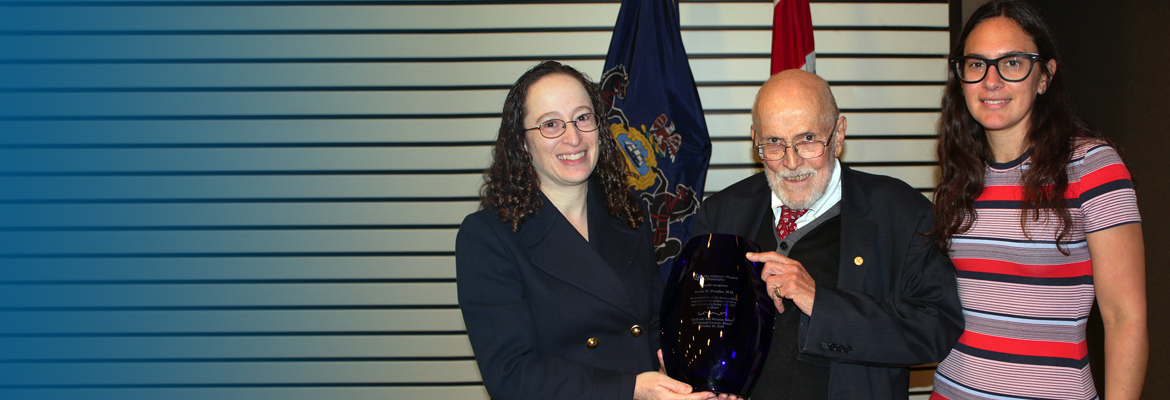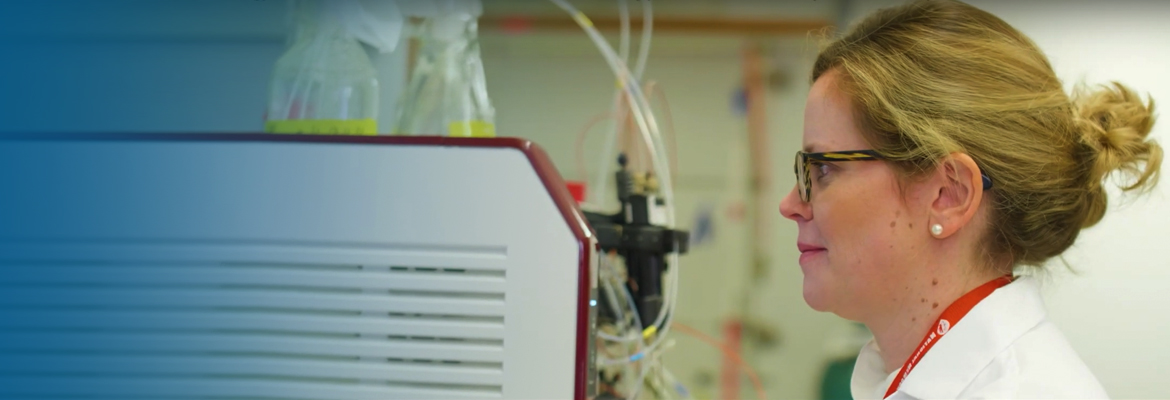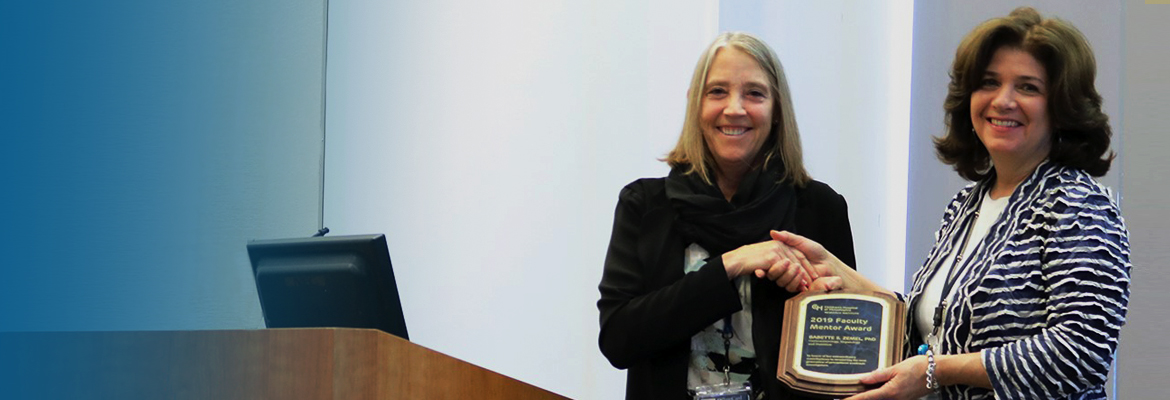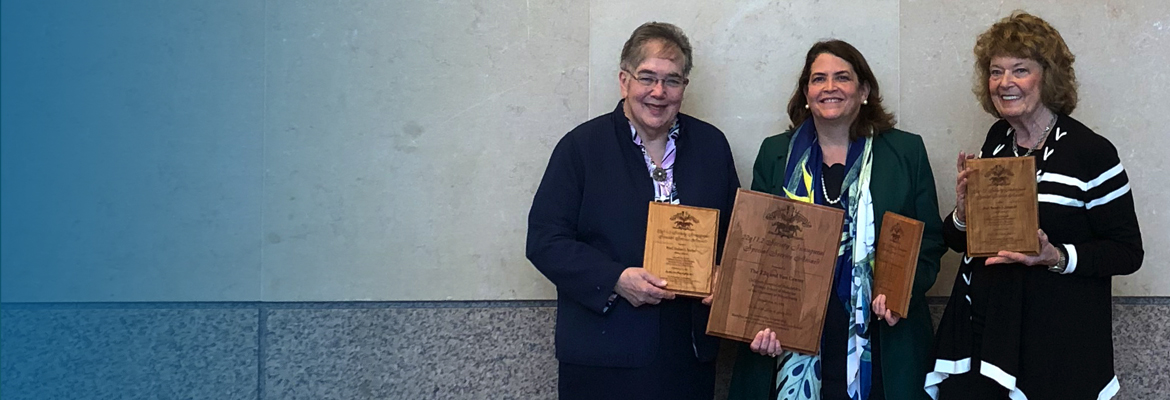The Society of Radiologists in Ultrasound (SRU) honored Children’s Hospital of Philadelphia radiologist, Beverly G. Coleman, MD, for her outstanding service to the society and the field of radiology. Dr. Coleman received the 2018 Distinguished Service Award at the SRU annual meeting in San Diego. Radiologists Edward Oliver, MD, PhD, and Steven Horiim, MD; and Lori Howell, DNP, executive director of the Center for Fetal Diagnosis and Treatment, travelled from CHOP to attend the reception and dinner honoring Dr. Coleman.
“Ultrasound is my passion,” Dr. Colelman enthused. “Throughout my career, I have tried to use this very unique imaging modality to serve patients and in so doing, I have had the pleasure and opportunity to serve many others.”
SRU is the only medical society in North America representing radiologists in the field of ultrasound. The society promotes the advancement of the science, practice, and teaching of the ultrasound specialization in patient care.
Dr. Coleman is the director of Fetal Imaging at CHOP’s Center for Fetal Diagnosis and Treatment, which provides highly specialized care to mothers carrying fetuses with known birth defects. The Center is recognized as an international leader in fetal diagnosis and care, and it is one of the few locations in the world that performs fetal surgery for life-threatening conditions. Dr. Coleman holds CHOP’s Endowed Chair in Fetal Imaging. She is currently the ultrasound commission chair for the American College of Radiology and served as president of the SRU from 2003 to 2005.














